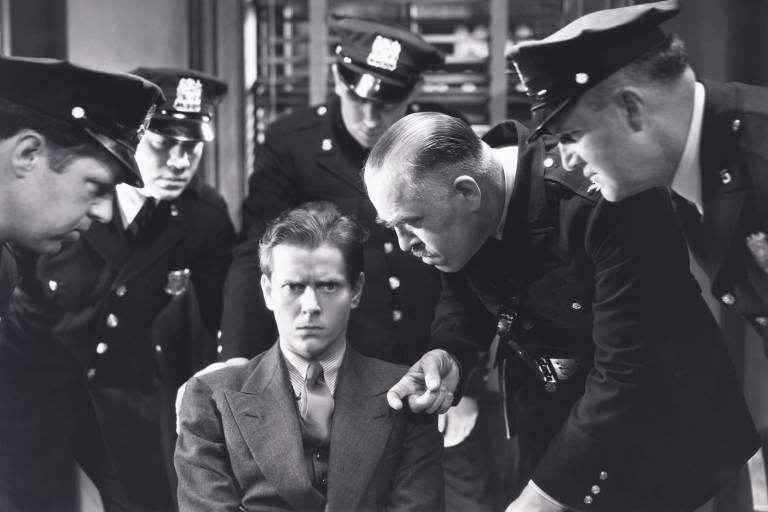
In last week’s blog about the Miranda Warnings, we discussed that there are many misconceptions and misunderstandings about how these warnings apply to a defendant’s individual case and whether a failure on the part of the police may later prove valuable in court. For decades, television has helped popularize the importance of Miranda warnings, but at the same time, has also helped to perpetuate a great many myths. Let’s take a look at some of the truths and myths below:
TRUTH: Police don’t have to read Miranda warnings to everyone and only have to read them if two conditions are met
Miranda is only required if two conditions are met. First, you must be in custody. That is, you must not be free to leave. Second, you must be subject to interrogation. That is, they must be questioning you. Yet even if police violate this rule, it does not mean that your case gets thrown out. If police violate Miranda, the prosecution in most cases will simply not be permitted to use your statement against you in court. But even this rule has exceptions. One exception is that if you choose to take the stand and testify on your own behalf, the prosecution may be able to use your statement against you even if the police obtained your statement in violation of your Miranda rights. Although there are many more technical aspects to such an analysis, most people are surprised to hear that the warnings are not always required and that they don’t always apply to every situation.
MYTH: You Always Have the Right to Remain Silent
There are situations where your Fifth Amendment right to remain silent does not apply. For example, a police officer does not need to apprise you of your Miranda rights if you freely talk to him or her while not in custody. Also, police can ask you general "booking questions," such as your name and date of birth. Police can also request that you provide identification like a driver's license or passport. Remember, that the remedy for violating your Miranda rights is NOT dismissal of your case, but rather, the remedy is that the prosecution cannot use your statement against you in court. This is still subject to a lot of exceptions. But even so, you should always exercise your right to remain silent when you are being questioned by police.
MYTH: Anything You Say Can Be Used Against You in a Court of Law
Most things that you say can be used against you in a court of law. But there are some topics of discussion that require the prosecution to provide additional justification before using that part of your statement against you. This would include admissions of prior criminal history or arrests. The prosecution may not be able to use this information even when the police have already completely complied with Miranda. Moreover, if you choose to exercise your right to remain silent, the police or the prosecutor, after a reasonable time, can begin to question you again. BUT ALWAYS REMEMBER: When deciding whether to speak to police or not, these possible exceptions should not matter. You should act as if EVERYTHING you say will be used against you – and stay silent. Let your attorney sort out the details later.
TRUTH: You Have the Right to Have an Attorney Present During Questioning
You absolutely do. But being able to contact an attorney at a moment’s notice, getting them to race over to the police station and getting him or her to intervene in a timely manner while you’re being questioned by police hardly ever happens in real life. There’s usually just not enough time. If you have the impression that the police are going to stop everything they are doing and run and get you an attorney, that’s never going to happen. This right only means that that they will (should) stop questioning you until you have an attorney present. This generally happens after you have been charged. Usually a judge will assign an attorney to represent you at bond court. This right to have an attorney present during questioning used to be considered absolute, although a recent United States Supreme Court case suggests that if the police or prosecution wait long enough they may be able to question you again, even though you previously requested an attorney.
TRUTH: If You Cannot Afford an Attorney One Will Be Made Available to You Free of Charge
This is technically true. However, like discussed above, police will not run out and get you an attorney. This is how it works in real life. You will generally sit in lock-up until they bring you before a judge. Once before the court, the judge will determine if you qualify for the services of an attorney from the Public Defender’s Office. If you have a private attorney, and he shows up at the police station in person, and he shows his attorney credentials – then they will generally let you talk to your attorney. But that is often after the police have already questioned you and heard the information they needed to hear.
Protect Your Rights with an Experienced Legal Team
Much different than what is portrayed on television or in the movies, the actual effect of a police violation of Miranda warnings is sometimes less spectacular, although it’s also true that in many cases, a violation of your rights will in fact result in a case being dismissed or a finding of not guilty. A knowledgeable criminal attorney will be able to properly analyze your case to determine how the violation will affect you and your very unique case. Contact Sexner & Associates LLC at (800) 996-4824 or online for intelligent answers. Our phones are open 24 hours a day.
